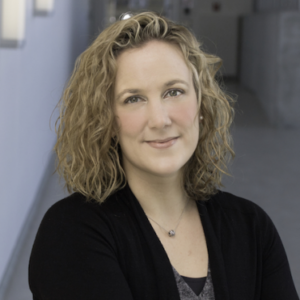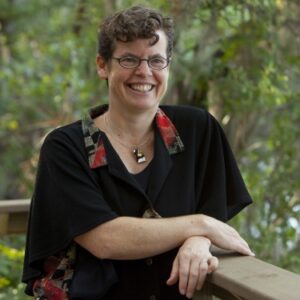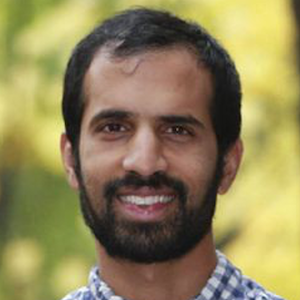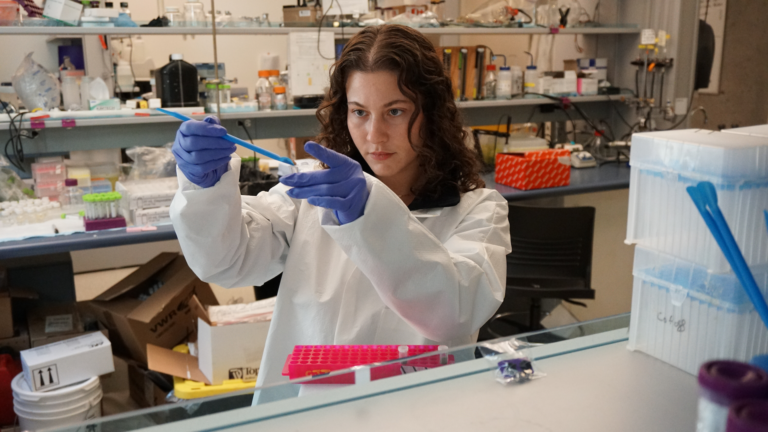UBC experts on the fifth anniversary of the COVID-19 global pandemic
On March 11, 2020, the World Health Organization declared the COVID-19 outbreak a global pandemic.
The worldwide public health emergency lasted just over two years, but its ramifications continue to be felt nearly five years after the WHO’s declaration.
We asked UBC experts how COVID-19 has changed the world within their areas of expertise.
Children’s health

Manish Sadarangani
(He/Him/His)
Associate Professor, Department of Pediatrics
“I think the main learning from the pediatric health perspective has been that we need to consider the full impact of public health interventions on child health—from the risk of infection and benefits of vaccination to psychosocial health and more. It also highlighted the importance of social determinants of health and how vulnerable families were further disadvantaged.”
Tel: 604-875-2422
Email: msadarangani@bcchr.ubc.ca
Interview languages: English
Expertise:
- vaccines
- pediatric infectious diseases
eHealth and telemedicine
Kendall Ho, MD
Professor, Department of Emergency Medicine, eHealth Strategy Office
“Social isolation, closure of community-based health facilities, and a need to protect hospital services for those who really need in-person care propelled the health system to pivot towards using technologies to support community-based healthcare—telehealth or virtual care. Today, with videoconferencing, wearables for remote patient monitoring and artificial intelligence, it’s not whether telehealth will continue in our new normal, but in what ways technology-enabled care can improve access to high-quality services for populations that have been underserved in the conventional, in-person care system.”
Tel: 604-875-4111 Ext. 69153
Email: Kendall.Ho@ubc.ca
Interview languages: Chinese, English, French
Expertise:
- eHealth
- eLearning
- global eHealth

Julie Robillard, PhD
(She/Her/Hers)
Assistant Professor, Division of Neurology
“The pandemic has led to an exponential increase in the adoption of social robots designed to provide feelings of connectedness and companionship while limiting human contact. These devices, previously thought to belong in the realm of science-fiction films, became widely used, with experiences of associated benefits as well as exposures to potential harms.”
Tel: 604-827-0642
Email: jrobilla@mail.ubc.ca
Interview languages: English, French
Expertise:
- mental health
- health technology
- robots
Dentistry
Dr. Andrea Esteves
(She/Her/Hers)
Clinic Director, Faculty of Dentistry
“One of the most challenging aspects of the COVID-19 pandemic was how to continue to provide oral health care in a safe manner for patients and the dental team. Additional infection prevention measures and tools were added to an already strict protocol. These proved to be efficient, since no outbreaks occurred in dental settings. Many of these measures have been incorporated into daily practice, making dentistry even safer.”
Email: aesteves@mail.ubc.ca
Interview languages: English, Portuguese, Spanish
Expertise:
- clinical dental practice
* unavailable March 5-8
Environmental safety

Michael Brauer, ScD
Professor, School of Population and Public Health
“The pandemic increased awareness of the importance of indoor air quality and the roles of indoor ventilation, air filters, handwashing and surface cleaning for disease transmission. We also learned a lot about masks—their effectiveness and the willingness of people to wear them. This has implications for future pandemics but also other hazards such as wildfire smoke.”
Tel: 604-822-9585
Email: michael.brauer@ubc.ca
Interview languages: English
Expertise:
- air quality and health
- masks
- indoor air
* unavailable March 10-11

Steven N. Rogak, PhD, P.Eng.
(He/Him/His)
Professor, Dept. of Mechanical Engineering
“In aerosol science, it’s now clear that many diseases are airborne, not just spread through surfaces. This has led to more focus on ventilation and mask-wearing. While masks help reduce transmission, it’s been hard to see clear reductions in disease rates from mandates, likely due to low compliance. We’ve also learned that virus-laden aerosols deactivate quickly but in a complex way, so that close contact remains the riskiest type of exposure.”
Tel: 604-785-6388
Email: rogak@mech.ubc.ca
Interview languages: English
Expertise:
- aerosols
- masks
- ventilation
Mojtaba Zabihi
PhD Candidate, UBCO School of Engineering
“UBC research highlights the importance of airflow dynamics in preventing airborne transmission of pathogens, suggesting airflow patterns may matter more than air changes per hour (ACH). This challenges traditional indoor air quality and ventilation standards, which focus on thermal comfort and ACH. These findings could help revise standards for safer, more energy-efficient buildings.”
Tel: 250-807-8428
Email: mojtaba.zabihi@ubc.ca
Interview languages: English, Persian
Expertise:
- indoor air quality
- indoor environment codes
- computational fluid dynamics of airborne pathogens
Housing

Patrick Condon, BSc, MLA
Professor, School of Architecture and Landscape Architecture
“The pandemic put a strong lens on the problem of housing inequality and how overcrowding due to high home costs was the main vector for the disease. These issues are at the heart of my book Broken City.”
Tel: 604-928-8211
Email: patrick.condon@ubc.ca
Interview languages: English
Expertise:
- urban design
- housing
- sustainable communities
Long COVID

Christopher Carlsten, MD, MPH
Professor and Head, UBC Respiratory Medicine, Respiratory Division, Department of Medicine, Vancouver Coastal Health Research Institute
“Perhaps the biggest enduring impact from COVID-19 is that most (though unfortunately not all) in the medical community now take more seriously the idea that a common virus can have persistent adverse functional impact even long after infection has resolved. For many long COVID sufferers, this recognition has at least given some solace, as they face ongoing symptoms.”
Tel: 604-875-4122
Email: carlsten@mail.ubc.ca
Interview languages: English
Expertise:
- health care
- public health
- long COVID
Naveed Janjua, MBBS, DrPH
Clinical Professor, School of Population & Public Health and Director, UBC Centre for Disease Control
“We typically think of respiratory infections as short-term illnesses from which we recover within a few days. However, with COVID-19, many people continue to experience ongoing symptoms even after the acute phase, and some develop lasting, long-term health conditions such as diabetes, cardiovascular disease or neurological disorders. Understanding why and how COVID-19 causes these effects is crucial for developing effective treatments and support systems for those living with long COVID. Additionally, we must strengthen healthcare systems to ensure they can provide comprehensive care and support for affected individuals.”
Tel: 778-988-2089
Email: naveed.janjua@bccdc.ca or naveed.janjua@ubc.ca
Interview languages: English, Punjabi (spoken only), Urdu, Hindi (spoken only)
Expertise:
- long COVID
- long-term impacts of COVID-19 on health
- impact on diabetes, cardiovascular complications etc.
* unavailable Feb. 26-March 1
Mental health

Dr. Steven Taylor
(He/Him/His)
Professor, Department of Psychiatry
“COVID-19 served as a catalyst, accelerating trends already underway, such as providing therapy via videoconferencing. COVID-19 highlighted the need for free, readily accessible mental health services, especially for vulnerable groups such as people living in poverty. COVID-19 underscored the problem of burnout in healthcare workers and the adverse effects of lockdown.”
Email: steven.taylor@ubc.ca
Interview languages: English
Expertise:
- anxiety disorders
- posttraumatic stress disorder
- cognitive-behaviour therapy
Online learning

Ron Darvin
(He/Him/His)
Assistant Professor, Department of Language & Literacy Education
“The pandemic exposed deep digital inequities even within wealthy countries like Canada. It debunked the myth of youth as ‘digital natives’ and showed us that while students may know how to use Instagram or TikTok, many still had to learn digital literacies to navigate online learning effectively. The pandemic accelerated efforts to develop learning management systems and integrate hybrid learning and other flexible approaches. It also highlighted that teaching online requires more than platform proficiency—it demands teaching strategies that specifically fit the online world.”
Tel: 778-889-5080
Email: ron.darvin@ubc.ca
Interview languages: English, Tagalog
Expertise:
- digital literacy
- artificial intelligence
- educational technology
* unavailable Feb. 27-March 3
Public health readiness
Srinivas Murthy, MD CM, MHS
Clinical Associate Professor, Department of Pediatrics
“There was a moment when I think that COVID-19 catalyzed increased pandemic preparedness globally—working together, sharing data, and building trust across our institutions. I think that moment has passed, and while, scientifically, we are much further ahead in preparing for the next pandemic in terms of the development of countermeasures, we are much further behind socially in our ability to respond. And if we’ve learned anything from the COVID-19 pandemic, developing tools to defeat pandemics is only a small part of our necessary whole-of-society response to an omnicrisis that is a pandemic.”
Tel: 604-445-7001
Email: srinivas.murthy@cw.bc.ca
Interview languages: English
Expertise:
- global public health
- emerging infections
- novel respiratory pathogens
Dr. Daniel McDonald
Associate Professor, Department of Statistics
“The COVID-19 pandemic crystallized the need for rapid deployment of public health surveillance, analytics, and forecasting—efforts that must be operational in hours rather than weeks or months. To achieve this, we must create capacity before the next pandemic emerges. This means sharing critical real-time data, building automated reporting pipelines, leveraging statistics and machine learning to improve projections, and training the public health workforce to operate these systems..”
Email: daniel@stat.ubc.ca
Interview languages: English
Expertise:
- aggregate surveillance data
- statistical and epidemiological forecasting
- nowcasting

Sarah P. Otto
Professor, Department of Zoology
“Researchers are now better linked across fields and across the world, working together better than ever before. We’ve also developed better tools to project infectious diseases, including lab assays that allow us to predict which sites in a virus matter most for it to spread faster or to evade immunity. Of greater concern is that there is substantially more mistrust of vaccinations and of measures to control viral spread. Combined, these saved hundreds of thousands of lives in Canada alone.”
Tel: 604-822-2778
Email: otto@zoology.ubc.ca
Interview languages: English
Expertise:
- evolution
- mathematical modeling
- population genetics
* available after Feb. 27
Seniors care

Roger Wong, CM, BMSc, MD, FRCPC, FACP, FCAHS
Clinical Professor, Division of Geriatric Medicine
“The pandemic revealed critical gaps in seniors’ health and care, reinforcing the need for improvements in long-term care, mental health supports and expanded community-based services. While public awareness of older adults’ health and well-being has increased, we still have a lot to do to ensure the diverse needs of seniors—especially those with vulnerable health conditions—are met in sustainable ways.”
Contact: Please contact Brett Goldhawk at 778-952-7858 or brett.goldhawk@ubc.ca to arrange interviews
Interview languages: English, Cantonese
Expertise:
- impact of COVID-19 on seniors
- lessons learned in long-term care
Travel
Dr. Mahmudur Fatmi
Associate Professor, UBCO School of Engineering
“The pandemic has reshaped travel behaviour, from work and shopping to health care and housing. Many of these changes have persisted and are affecting how we equitably plan and invest in communities, roads, transit and digital services. My research in travel behaviour analysis explores these shifts and their implications.”
Tel: 250-899-4177
Email: mahmudur.fatmi@ubc.ca
Interview languages: English
Expertise:
- remote work
- online shopping and virtual healthcare services
- transport and equity
* unavailable Tuesdays and Thursdays, or afternoon of Feb. 26
Vaccines
Dr. Horacio Bach
Clinical Assistant Professor, Division of Infectious Diseases
“Based on official reported COVID-19 deaths, we estimated that vaccinations prevented 14.4 million deaths from COVID-19 in 185 countries and territories between Dec. 8, 2020, and Dec. 8, 2021. COVID-19 vaccination has substantially altered the course of the pandemic, saving tens of millions of lives globally. However, inadequate access to vaccines in low-income countries has limited the impact in these settings, reinforcing the need for global vaccine equity and coverage.”
Tel: 604-727-9719
Email: horacio.bach@ubc.ca
Interview languages: English, Spanish
Expertise:
- infectious diseases
- immune system

Prof. Anna Blakney, PhD
(She/Her/Hers)
Assistant Professor
“The COVID-19 pandemic revolutionized mRNA vaccine research, proving its speed, scalability and efficacy. This success accelerated investment in RNA technology, but vaccines are just the beginning. The next frontier is mRNA therapeutics—leveraging self-amplifying RNA and other innovations for durable protein replacement, immunomodulation and disease treatment beyond infectious pathogens. Unlocking these capabilities will redefine medicine, transforming how we treat cancer, autoimmune diseases and genetic disorders.”
Tel: 604-827-0951
Email: anna.blakney@msl.ubc.ca
Interview languages: English
Expertise:
- messenger RNA
- vaccines
- drug delivery











